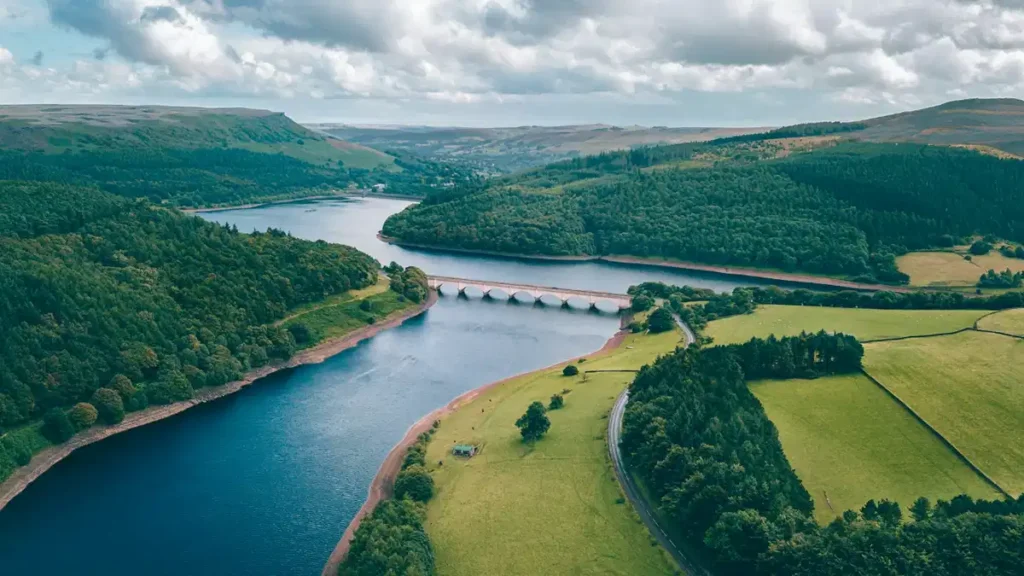Introduction
Rivers have historically been the lifeblood of civilizations, providing essential resources such as fresh water, fertile soil, and transportation routes. However, several countries around the world exist without a single permanent river, relying instead on alternative water sources and innovative management strategies. This article explores ten such nations, examining how they sustain their populations and economies in the absence of natural rivers.

1. Saudi Arabia
Saudi Arabia, encompassing a significant portion of the Arabian Peninsula, is characterized by vast deserts like the Rub’ al Khali, or Empty Quarter. The country’s arid climate and minimal rainfall preclude the formation of permanent rivers. To meet water demands, Saudi Arabia relies heavily on underground aquifers, many of which contain ancient, non-renewable water reserves. Additionally, the nation has invested extensively in desalination plants, converting seawater into potable water to supply approximately 50% of its needs. Seasonal watercourses, known as wadis, may form following rare rainfalls but are typically short-lived due to rapid evaporation.
2. Kuwait
Situated in the Arabian Gulf, Kuwait experiences a hot, arid climate with scant rainfall, resulting in the absence of permanent rivers. The country addresses its freshwater needs primarily through seawater desalination, positioning itself as one of the world’s leading producers of desalinated water. While groundwater sources exist, they are limited and insufficient to meet the demands of the population. Consequently, Kuwait continues to invest in advanced desalination technologies and water management practices to ensure a sustainable water supply.
3. Qatar
Qatar, a small nation on the northeastern coast of the Arabian Peninsula, lacks permanent rivers due to its desert landscape and minimal rainfall. The country meets its water requirements predominantly through desalination of seawater, a process that is energy-intensive and costly. To supplement this, Qatar also taps into limited underground aquifers. Recognizing the challenges of water scarcity, the nation is exploring innovative solutions, including water recycling and conservation initiatives, to reduce reliance on desalination and preserve existing groundwater resources.
4. Bahrain
As an island nation in the Persian Gulf, Bahrain experiences an arid climate with no permanent rivers. Historically, the country relied on natural springs and groundwater for fresh water. However, over-extraction has led to the depletion and salinization of these sources. Today, Bahrain depends heavily on desalination plants to provide the majority of its freshwater supply. The government is also implementing measures to enhance water efficiency and reduce consumption, aiming to address the challenges posed by limited natural freshwater resources.
5. United Arab Emirates (UAE)
The United Arab Emirates, comprising seven emirates along the southeastern Arabian Peninsula, is characterized by a desert climate with extremely low rainfall, resulting in no permanent rivers. To meet water demands, the UAE has become one of the world’s largest producers of desalinated water, with numerous plants operating along its coastline. The country is also investing in sustainable practices, such as wastewater treatment and reuse, as well as research into alternative water sources like atmospheric water generation, to ensure long-term water security.
6. Oman
Oman, located on the southeastern coast of the Arabian Peninsula, lacks permanent rivers due to its arid environment. The nation relies on a combination of desalinated seawater and ancient underground water channels known as aflaj to meet its water needs. These aflaj systems, some of which are UNESCO World Heritage sites, channel groundwater from hills to settlements for irrigation and consumption. Oman continues to maintain and modernize these traditional water systems while expanding its desalination capacity to support its growing population and development.
7. Libya
Libya, located in North Africa, is predominantly covered by the Sahara Desert, resulting in an extremely arid climate with no permanent rivers. The country relies heavily on groundwater extracted from aquifers, including the vast Nubian Sandstone Aquifer System. To address water scarcity, Libya has undertaken ambitious projects like the Great Man-Made River, a network of pipelines transporting water from southern aquifers to coastal cities. Despite these efforts, challenges persist due to over-extraction and the need for sustainable water management practices.
8. Yemen
Yemen, situated on the southern end of the Arabian Peninsula, has a predominantly arid climate with no permanent rivers. The country relies on seasonal streams, known as wadis, and groundwater for its water supply. However, over-extraction and limited rainfall have led to severe water shortages. Efforts to address these challenges include rainwater harvesting, improving irrigation efficiency, and exploring desalination options, though political and economic instability have hindered large-scale infrastructure development.
9. Malta
Malta, an island nation in the Mediterranean Sea, lacks permanent rivers due to its small size and limited rainfall. The country meets its freshwater needs through a combination of groundwater extraction and seawater desalination. To combat over-reliance on groundwater, Malta has invested in modern desalination plants and implemented water conservation measures, including efficient irrigation techniques and public awareness campaigns to promote water-saving practices.
10. Monaco
Monaco, a tiny city-state on the French Riviera, has no permanent rivers within its limited territory of just 2.1 square kilometers. The principality relies on imported water and desalination to meet the needs of its residents and visitors. Due to its affluent status and small size, Monaco has been able to implement efficient water management systems, ensuring a steady and reliable water supply despite the lack of natural freshwater sources.
Conclusion
While rivers play a vital role in supporting human life, the ten countries highlighted in this article demonstrate that survival and development are possible without them. Through technological advancements in desalination, groundwater management, and conservation efforts, these nations have adapted to their unique environmental challenges. However, with increasing global concerns over climate change and water scarcity, the need for innovative and sustainable water solutions will remain crucial for future generations.
Couple Seated Next to Deceased Passenger for Hours on Qatar Airways Flight



